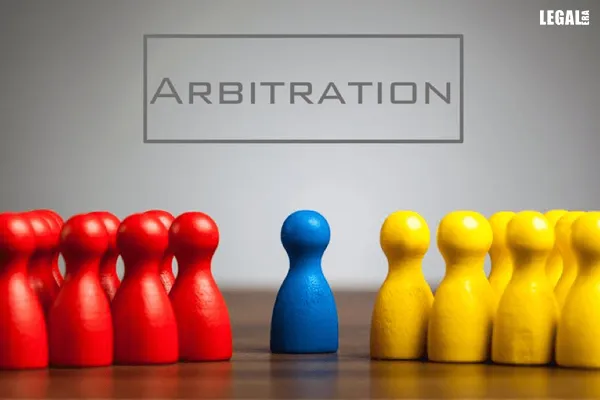Allahabad High Court: Section 5 Of Limitation Act Inapplicable To Section 34 Arbitration Act Applications, Timelines To Be Strictly Adhered
The Allahabad High Court clarified that Section 5 of the Limitation Act does not extend to proceedings governed by Section;

Allahabad High Court: Section 5 Of Limitation Act Inapplicable To Section 34 Arbitration Act Applications, Timelines To Be Strictly Adhered
The Allahabad High Court clarified that Section 5 of the Limitation Act does not extend to proceedings governed by Section 34 of the Arbitration and Conciliation Act, 1996. Additionally, the Court emphasized the strict adherence to the timeline prescribed in Section 34(3) for challenging an arbitral award.
Section 34(3) of the Arbitration and Conciliation Act, 1996, stipulates a timeframe of three months for challenging an arbitral award. However, the proviso to Section 34(3) grants the court the authority to condone a delay of up to 30 days if sufficient cause for the delay is demonstrated, explicitly stating that no further extension will be granted beyond this period.
The Court interpreted the phrase "but not thereafter" in Section 34(3) as indicative of the legislative intent to establish "strict and non-negotiable timelines" for challenging arbitral awards. According to the Court's interpretation, this phrase excludes any discretion that courts may otherwise have had in condoning delays in the submission of applications under Section 34.
“The language of Section 34(3) of the Act is clear and unambiguous, leaving no room for discretionary interpretation. This language reflects a deliberate policy decision to impose a rigid temporal constraint, emphasizing the importance of adherence to statutory timelines in the arbitration regime. Allowing indefinite delays in challenging awards would undermine the efficiency and credibility of arbitration, eroding trust in the process and detracting from its efficacy as a viable alternative to traditional litigation,” held Justice Shekhar B. Saraf.
A writ petition contesting an arbitration award issued pursuant to Section 20F(6) of the Railways Act, 1989, concerning an acquisition dated back to 2015, was lodged in 2020. The Court disposed of the petition, instructing the petitioner to pursue remedies available under Section 34 of the Arbitration and Conciliation Act, 1996.
The application filed under Section 34 was dismissed due to a delay of 120 days from the High Court's order in the writ petition. The court ruled that Section 5 of the Limitation Act would not be applicable in this case.
The Court noted that the arbitration award was issued on March 15, 2018. Subsequently, the writ petition was filed on November 21, 2019, with a delay of 18 months. The writ petition was dismissed on February 20, 2020. Following this, the application under Section 34 was filed on July 17, 2020, with a delay of 5 months.
The Court cited the case of Union of India v. Popular Construction Co., wherein the Supreme Court ruled that the timeline outlined in Section 34(3) is absolute and Section 5 of the Limitation Act cannot be invoked to condone delays in such applications. The Apex Court emphasized that any extension of the limitation period beyond what is specified under Section 34(3) would render the phrase "but not thereafter" redundant.
The Court also referred to the case of Bhimashankar Sahakari Sakkare Karkhane Niyamita v. Walchandnagar Industries Limited, where, in line with the Popular Construction Co. decision, the Supreme Court held that while Section 43(1) of the 1996 Act generally applies the Limitation Act to proceedings under the Arbitration and Conciliation Act, 1996, the specific timeline prescribed under Section 34(3) excludes the application of the Limitation Act.
Justice Saraf referenced his previous ruling in Esha Agarwal and Ors. v. Ram Niranjan Ruia, in which he concluded that delays cannot be condoned beyond the 30-day period stipulated under Section 34(3) of the Act.
“The courts can condone the delay within a further period of thirty days, provided sufficient cause is present, but not 'thereafter'. I believe the term 'thereafter' used in the section does not need any further interpretation. A plain reading of the said section and the proviso makes it as clear as the sky on a summer morning that courts cannot condone a delay beyond the extendable period of thirty days provided in the section,” held Justice Saraf in Esha Agarwal and Ors.
The Court held that even after granting the appellant the benefit of Section 14 of the Limitation Act, the application under Section 34 was still time-barred. Consequently, the appeal under Section 37 of the Act was dismissed.
In its concluding remarks, the Court noted that arbitration serves as a more streamlined and time-effective mechanism for dispute resolution, emphasizing the necessity for parties to adhere strictly to the established timelines.
“Delay in challenging arbitral awards can prejudice the rights of the parties involved, particularly the party seeking to enforce the award. When disputes are resolved expeditiously, parties can obtain closure and move forward with their lives, rather than being mired in prolonged legal battles. Moreover, timely resolution reduces the burden on the court system, allowing courts to focus their resources on cases that require judicial intervention.”

